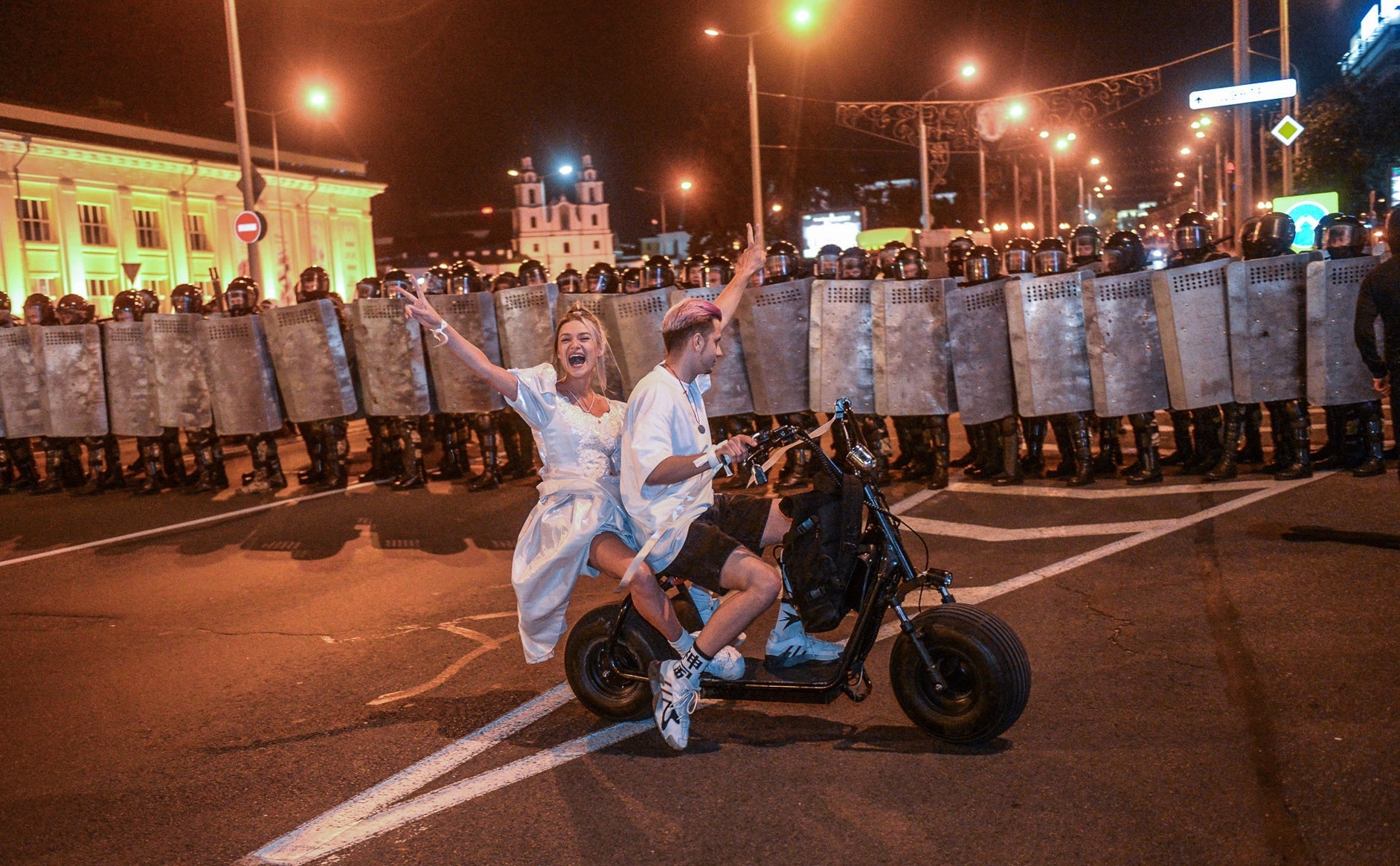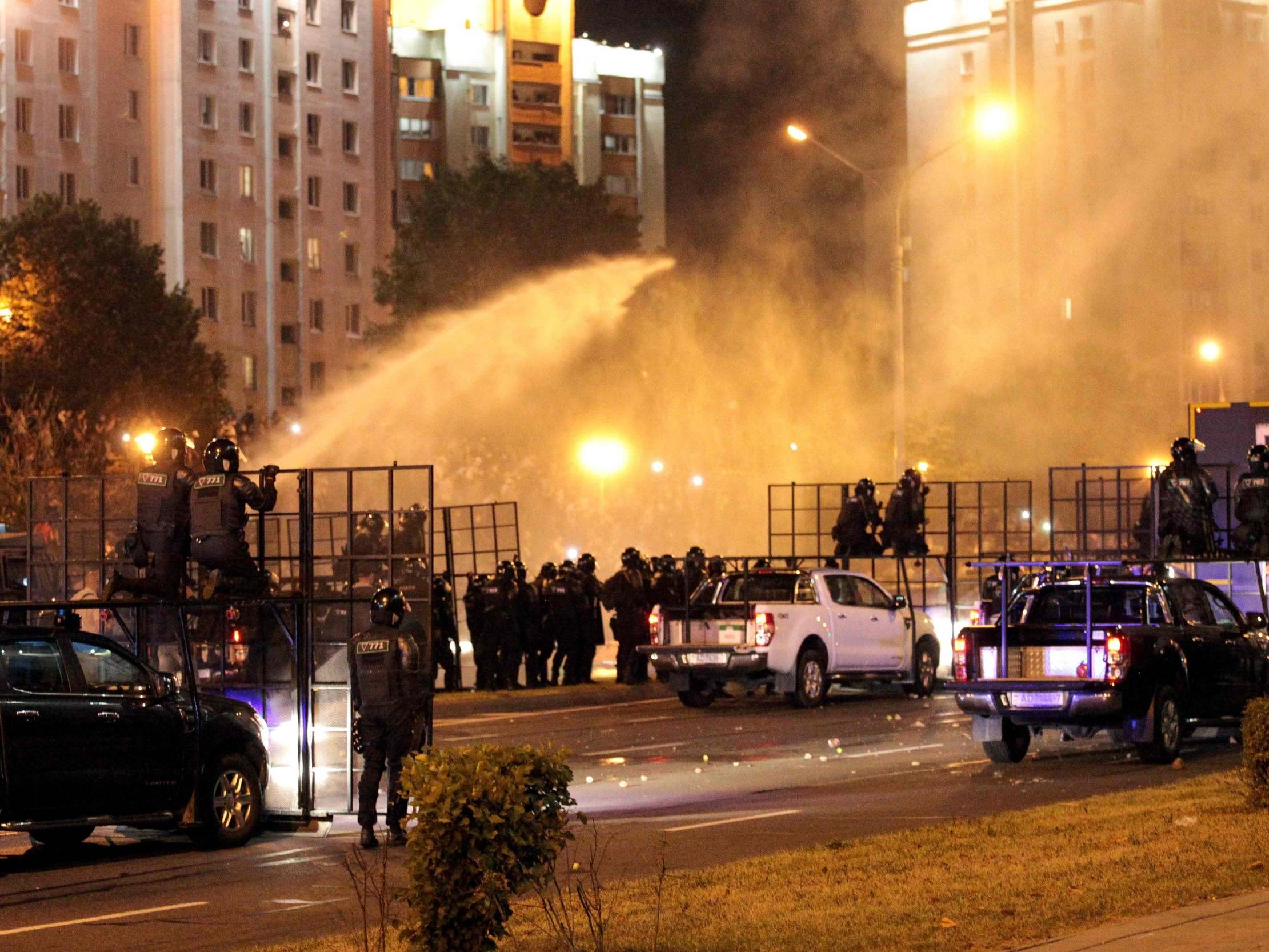Alexander Lukashenko: Can Europe’s ‘last dictator’ cling on to power?
The regime has been building resilience for 26 years but that doesn’t mean there isn’t trouble ahead, writes Oliver Carroll


If Alexander Lukashenko is anything, he is a survivor. You don’t remain in power for 26 years without an instinct for self-preservation.
In battle after battle, Belarus’s “dictator” has applied the tactics of a sumo wrestler, smothering his political opponents, before dispatching them to prison or exile.
He’s also dealt with post-election controversies before. In 2010, for example, his security forces brutally suppressed an opposition rally in under eight minutes. Since then, he has only consolidated his security apparatus further, boosting loyal departments like the KGB, the security agency that still goes by its Soviet name, special forces and his interior ministry soldiers.
Yet there is a sense that something significant has changed as a result of his claimed 80.08 per cent election “victory” on Sunday – and especially as a result of the withering crackdown that followed.
Mr Lukashenko’s regime has never been considered democratic. It would take an extremely naive person to believe his previous results of 80.1 per cent, 75.6 per cent, 82.6 per cent, 79.7 per cent and 84.1 per cent represented anything other than bureaucratic fantasy. But even when Mr Lukashenko recorded those fanciful numbers, there was always a belief that he and his brand of stable, neo-Soviet conservatism enjoyed the support of at least the majority.
Not so any more. Mr Lukashenko’s bungled handling of the coronavirus, a deepening economic crisis, the appearance of a woman rival, and a peaceful rally — the violent response put dozens in intensive care — have served to remove a veneer of legitimacy.
“For the first time, Lukashenko is genuinely unpopular, and people realise he lost the election,” says David Marples, professor of history at the University of Alberta and Belarus expert. “He has lost his contract with the people and his mandate to rule. That’s the fundamental difference this time around.”
The harshness of police action in putting down those protests also crossed a rubicon. Before, Belarusian special forces were never knowingly undersold on bludgeoning, but generally limited themselves to fists and truncheons. On Sunday, the country was introduced to an entirely new menu: water cannon, rubber bullets, stun grenades, tear gas, and police vans ramming protesters.
There was even a report of one man dying. That was later confirmed to be untrue, but given the seriousness of the other injuries and the promise of further protests, that respite may only prove temporary.
“If there were to be a fatality, that would be an important red line for Belarusians,” said Artyom Shraynram. “So far the regime seems to be sticking to non lethal weapons. Provided they continue to do that they will probably carry the elite with them. The regime is more stable than meets the eye.”
The prospect of a split in the elite remains the most obvious route to any kind of rapid change in Belarus. As Victor Yanukovych saw next door in Ukraine, dramatic things happen quickly — especially as soon as you lose the support of men with guns.
On this front, Mr Lukashenko appears to be on reasonably solid ground.
The inner core of his security state does not reflect the increasingly modern outlook of Belarusian society. But it is cohesive enough, held together by the common bonds of a quarter of a century of repression. (Here it differs from the Yanukovych elite which was held together by patronage and graft).
Where things might get interesting is the army. Ordinary soldiers are not involved in the president’s worst crackdown operations, and the regime does not subject them to the same kind of ideological training as it does to special forces. Many of them will have friends outside of the army, suggests Mr Marples, and might object to the more harsh aspects of the president’s protest policy.
“Society is quite close together in this respect,” he says. “Most people don’t like seeing their mates get beaten up.”

Geopolitics is the other major factor to consider, with Russia an obvious elephant in the room. On Monday morning, Vladimir Putin was one of the first leaders to congratulate Mr Lukashenko on his claimed victory. Other than that, Moscow has taken a studiously neutral position, with most state media resources reporting objectively on the election and Mr Lukashenko’s crackdown.
On one level, Mr Lukashenko’s ugly victory makes life easier for Moscow. In the next few days and weeks, the European Union is likely to reimpose sanctions on Europe’s “last dictator” – forcing him to seek better terms with the Kremlin. A weaker Lukashenko at home also allows Moscow to conduct stronger bargains on the things that matter most: oil, gas and political integration.
Vladimir Frolov, a former Russian diplomat and foreign policy expert, said Russia would be “satisfied” with the results. “Our strategy in Belarus is to transition from a high-maintenance to a low-maintenance relationship, and so far so good.”
But others contend Mr Lukashenko’s tarnished reputation made for a much more complicated relationship, with unpredictable consequences.
Gleb Pavlovsky, who worked as an advisor to Mr Putin for a decade, suggested the prospect of saving a “mortally wounded” Lukashenko would worry the Russian president.
“Putin doesn’t know what to do,” says Mr Pavlovsky. “He wouldn’t be against Lukashenko taking the next flight to Moscow. But an agreed replacement needs be on the flight back, and Moscow doesn’t have that person just yet.”
Join our commenting forum
Join thought-provoking conversations, follow other Independent readers and see their replies
Comments
Bookmark popover
Removed from bookmarks